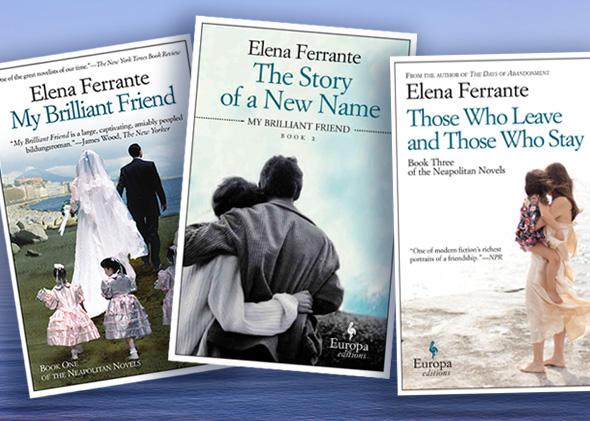Ferrante siren! This is a tweet that was tweeted on Twitter by Twitterer Maud Newton.
Indeed, The Paris Review has revealed that its Spring 2015 issue will contain the first ever in-person interview with Elena Ferrante, the mysterious genius behind the Neapolitan Novels and Tesseract-like object of obsession for much of the literary world. Ferrante swept onto the American scene in a dark and glittering chariot of inscrutability when her first book, My Brilliant Friend, hit stores in 2012, followed closely by The Story of a New Name (2013) and Those Who Leave And Those Who Stay (2014). As the novels—about the troubled relationship between two women, Lila and Elena—enthralled readers, guesswork around Ferrante’s identity proliferated, with reviewers speculating that “she” might be a mother, a man, or a sentient cabal of fire-ants. (For her part, Ferrante claimed in an early letter to her publisher that “books, once they are written, have no need of their authors.”)
A fragment of the forthcoming exchange (And, again, visit TPR’s blog for a heftier chunk):
INTERVIEWER: Many American reviews seem to make a direct connection between the work you do writing, its sincerity, its honesty, and your keeping out of the public eye. As if to say, the less one appears, the better one writes.
FERRANTE: Two decades are a long time, and the reasons for the decisions I made in 1990, when, for the first time, we considered my need to avoid the rituals of publication, have changed. Then, I was frightened by the possibility of having to come out of my shell. Timidity prevailed. Later, it was hostility toward the media, which doesn’t pay attention to books themselves and which values a work according to the author’s reputation. …. It’s not the book that counts but the aura of its author. If the aura is already there, and the media reinforces it, the publishing world is happy to open its doors and the market is happy to welcome you. If it’s not there but the book miraculously sells, the media invents the author, so the writer ends up selling not only his work but also himself, his image….
So. How did this interview come to be? Michael Reynolds, editor of Europa Editions, Ferrante’s publisher, told me that the idea originated with Paris Review editor Lorin Stein, who, aware of Ferrante’s desire for privacy, got in touch with Europa and suggested that the house’s Italian founders—already on good terms with the author—direct the conversation, so as not to totally dissolve her wall of smoke. Sandro Ferri, his wife Sandra Ozzola, and their daughter Eva met Ferrante face-to-face, Reynolds said. “I thought it was a brilliant idea, honestly, because obviously there is a difference between an in-person interview and one conducted over email,” he continued. “In the case of Elena, there was no way around it: She didn’t want to speak in person [with a stranger]. So the fact that The Paris Review came up with this idea—that was an exciting moment for us.”
Paris Review editor Lorin Stein could not be reached for comment.
